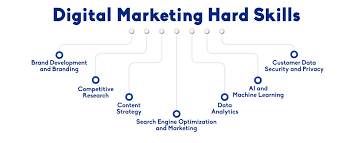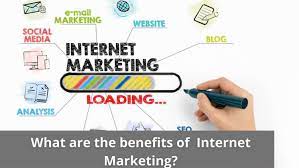Unlocking Success: The Art of Search Marketing Strategies in the UK
The Power of Search Marketing
Search marketing, also known as search engine marketing (SEM), is a powerful digital marketing strategy that aims to increase a website’s visibility in search engine results pages (SERPs) through paid advertising and search engine optimisation (SEO).
Paid Advertising
One of the key components of search marketing is paid advertising, commonly referred to as pay-per-click (PPC) advertising. With PPC campaigns, advertisers bid on keywords relevant to their target audience. When users search for those keywords, the ads appear at the top of the SERPs, driving targeted traffic to the advertiser’s website.
Search Engine Optimisation (SEO)
SEO is another crucial aspect of search marketing. It involves optimising a website’s content, structure, and technical elements to improve its organic ranking in search results. By enhancing on-page factors such as meta tags, keyword usage, and quality content, websites can attract more organic traffic and increase their visibility without having to pay for each click.
The Benefits of Search Marketing
Search marketing offers numerous benefits for businesses looking to enhance their online presence:
- Increased Visibility: By appearing at the top of SERPs through paid ads or organic rankings, businesses can reach a wider audience and attract more potential customers.
- Targeted Traffic: Search marketing allows businesses to target specific demographics, locations, and interests, ensuring that their ads are shown to users most likely to convert.
- Measurable Results: With detailed analytics and tracking tools, businesses can measure the effectiveness of their search marketing campaigns and make data-driven decisions for continuous improvement.
- Cost-Effective: While PPC advertising requires a budget for ad spend, SEO efforts can provide long-term benefits without ongoing costs per click.
In Conclusion
Search marketing is a dynamic and versatile strategy that combines the immediacy of paid advertising with the long-term benefits of SEO. By leveraging both paid and organic tactics effectively, businesses can enhance their online visibility, drive targeted traffic to their websites, and ultimately achieve greater success in the competitive digital landscape.
9 Essential Tips for Mastering Search Marketing
- Understand your target audience and their search behaviour.
- Use relevant keywords in your content and meta tags.
- Optimize your website for mobile devices.
- Create high-quality and engaging content regularly.
- Utilize local SEO strategies if applicable to your business.
- Monitor and analyse your search marketing performance regularly.
- Utilize paid search advertising like Google Ads effectively.
- Build quality backlinks from reputable websites to improve SEO.
- Stay updated with search engine algorithms and trends.
Understand your target audience and their search behaviour.
To maximise the effectiveness of your search marketing efforts, it is crucial to understand your target audience and their search behaviour. By gaining insights into how your audience searches for information online, including the keywords they use and the type of content they engage with, you can tailor your search marketing strategies to better meet their needs. This understanding allows you to create targeted campaigns that resonate with your audience, driving higher visibility and engagement for your brand in search engine results.
Use relevant keywords in your content and meta tags.
To maximise the effectiveness of your search marketing efforts, it is crucial to incorporate relevant keywords strategically within your website content and meta tags. By aligning your content with commonly searched terms and phrases related to your business or industry, you can improve your website’s visibility in search engine results. Including targeted keywords in meta tags such as title tags, meta descriptions, and alt text also helps search engines understand the context of your web pages, making it easier for them to rank your site for relevant searches. This practice not only enhances organic traffic but also ensures that your website is more likely to attract qualified leads who are actively seeking the products or services you offer.
Optimize your website for mobile devices.
In the realm of search marketing, a crucial tip for success is to optimise your website for mobile devices. With the increasing use of smartphones and tablets for online browsing, ensuring that your website is mobile-friendly is essential to reach and engage with a wider audience. By implementing responsive design, fast loading times, and user-friendly navigation on your site, you can enhance the user experience for mobile visitors and improve your search engine rankings. Mobile optimisation not only caters to the preferences of modern users but also aligns with search engines’ algorithms that prioritise mobile-friendly websites in their rankings. Embracing mobile optimisation is a strategic move that can significantly boost your online visibility and drive more traffic to your site.
Create high-quality and engaging content regularly.
Creating high-quality and engaging content regularly is a fundamental tip in search marketing. By consistently producing valuable and relevant content for your target audience, you not only improve your website’s visibility in search engine results but also establish credibility and trust with your visitors. Engaging content that resonates with users can drive organic traffic, increase user engagement, and ultimately lead to higher conversion rates. Regularly updating your website with fresh and compelling content not only enhances your SEO efforts but also keeps your audience coming back for more, fostering a loyal customer base and boosting your online presence.
Utilize local SEO strategies if applicable to your business.
When implementing search marketing strategies, it is crucial to consider utilising local SEO tactics if they are relevant to your business. Local SEO focuses on optimising your online presence to attract customers in a specific geographic area. By incorporating local keywords, creating location-specific content, and ensuring your business information is accurate and consistent across online directories, you can enhance your visibility to potential customers in your local area. Embracing local SEO strategies can help boost your online presence within your community and drive more foot traffic or leads to your physical location, making it a valuable addition to your overall search marketing efforts.
Monitor and analyse your search marketing performance regularly.
It is crucial to monitor and analyse your search marketing performance regularly to ensure the effectiveness of your strategies. By tracking key metrics such as click-through rates, conversion rates, and keyword rankings, you can gain valuable insights into what is working well and where improvements are needed. Regular monitoring allows you to make data-driven decisions, optimise your campaigns for better results, and stay ahead of the competition in the ever-evolving digital landscape.
Utilize paid search advertising like Google Ads effectively.
To maximise the impact of your search marketing efforts, it is essential to utilise paid search advertising platforms such as Google Ads effectively. By strategically crafting compelling ad copy, targeting relevant keywords, and setting appropriate bids, businesses can enhance their visibility in search engine results pages and attract qualified leads. Leveraging the advanced targeting options and tracking capabilities offered by Google Ads can help businesses reach their target audience efficiently and achieve a higher return on investment for their paid search campaigns.
Build quality backlinks from reputable websites to improve SEO.
Building quality backlinks from reputable websites is a fundamental strategy in search marketing to enhance SEO performance. Backlinks act as digital endorsements, signalling to search engines that your website is trustworthy and authoritative. By securing links from reputable sources, you not only increase your website’s visibility in search engine results but also establish credibility within your industry. Quality backlinks can boost organic traffic, improve search rankings, and ultimately contribute to a stronger online presence that resonates with both users and search algorithms.
Stay updated with search engine algorithms and trends.
To succeed in search marketing, it is essential to stay updated with the latest search engine algorithms and trends. Search engines continuously evolve their algorithms to provide users with the most relevant and high-quality content. By staying informed about these changes, businesses can adapt their SEO strategies to ensure that their websites remain visible in search results. Keeping abreast of industry trends also allows marketers to anticipate shifts in consumer behaviour and technology, enabling them to proactively adjust their search marketing campaigns for optimal performance and results.

